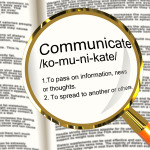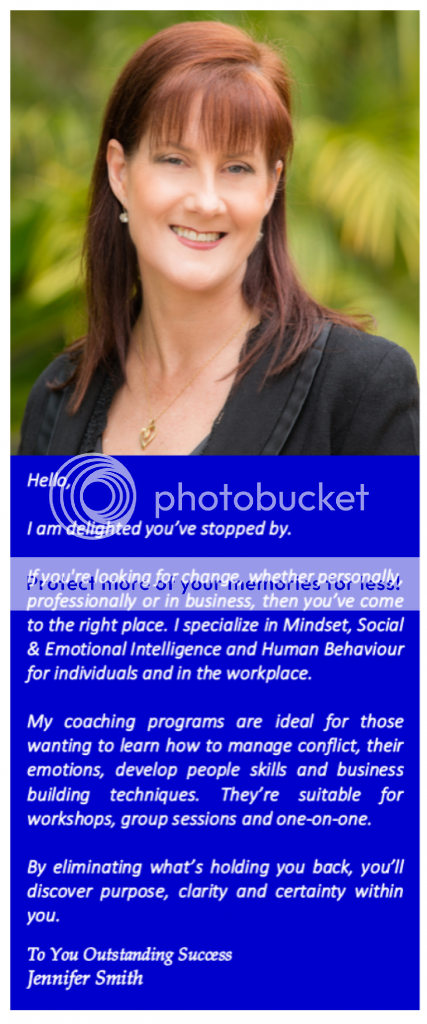Why Your Ability To Communicate Is The Master Key to All Doors?
Communication is the most used tool in our repertoire and sadly the most abused!
Have you ever considered why someone else gets the job over you?
Have you ever had your conversation abruptly cut short by the other party?
Have you ever had people fall asleep during your presentation?
If that is you, have you ever asked yourself, why does this happen?
It’s all in the way you communicate your message!
Let’s look at all 3 examples to the scenarios above:
- If you’re inspired, engaged, upbeat and full of energy during a job interview, chances are you’ll get noticed and may even get a call back. If you walk in with fear in your eyes, nervous, fidgeting, haven’t done your homework and uninspired, then pretty much forget everything you had planned to say, no matter how qualified, the likelihood is that you’re off the list permanently.
- If you’re speaking to someone and you start talking about yourself and are totally self-absorbed, not noticing or taking into consideration anything about the other party, you can pretty much guarantee your conversation will end with you being the only person present.
- If you’ve ever noticed people falling asleep during your presentation, the alarm bells should be ringing long and hard. This is a NO, NO….and is a tell-tale sign of boredom by the audience. It means that either your presentation skills needs some work or your content isn’t hitting its mark.
These are 3 examples of why good communication skills are essential.
What is effective communication?

Dr. Birtwhistle identified that:
7% was by the spoken word (verbal)
38% was by the tone of voice (tonality)
55% was by non-verbal clues (physiology)
We have 5 main ways (modalities) to communicate, let’s look at each.
- Verbally (speaking, listening, sounds)
- Visually (sight, writing, reading, pictures)
- Touch (sensory, feeling, emotion)
- Smell (scent, odor, aroma)
- Taste (flavour, palate, enjoyment)
Communication is the core of everything we do in life. Every time we interact in any capacity with another human being, we are communicating in some form. The great news is that ‘communication’ is a skill and can be learned. There are many ways you can learn new skills, through courses, learning from others, trial and error and practice, having a go and then having another go. These are all effective ways you can improve. Whichever one you decide works for you is great.
For professionals, it is imperative to master the skill of communication. Good oral and written skills are essential in the workplace either via technology, in person and over the phone.
You must be able to communicate your message clearly, concisely and effectively without hype, without fluff and without mistakes. You need to research your content, be accurate in what you present, check for and eliminate typographical errors, ensure that what you say whether written or oral makes sense and is cohesive.
In theory this may sound simple, but it not uncommon to come across poorly constructed messages because the communicator hasn’t taken the time to understand how to put it together.
There are several ways you can improve in each of the areas of communication. For the purpose of this article, I will use two communication styles as an example.
- Visual Communication
- One of the best ways to improve your writing skills is to read the content of others. Read books, articles, blogs, anything and everything you can get your hands on.
- If researching for a particular subject, then read the subject matter that applies to your research.
- If you don’t have a particular subject matter, read what interests you.
- Look at the style of the writing; examine how the article has been constructed. Once you start to read, you will begin to notice patterns in the way words or sentences have been written.
- Always check your language to ensure you’re not offensive.
- Practice writing smaller articles and then short stories and progress to an eBook or Book.
- Get others to critique your work, ask for opinions and feedback.
- Read what you have written out loud to yourself, does it sound okay to you? Would you be happy to present your work to others?
- Does your written communication make sense?
- Are your facts correct and on point.
- Are you using words you don’t understand to sound impressive?
- Verbal Communication
- One of the best ways to improve your speech is by saying your words out loud as if you’re speaking to an audience.
- Record everything you say and listen to the playback.
- Speak in front of the mirror and view what others see and hear.
- Slow your speech down to make sure each word is pronounced clearly.
- Elongate vowel sounds; this gives you a change in diction.
- Use all three voices (head, chest and middle) for variety.
- Use a mix of tonality (upbeat, full on, soft, calm, soothing).
- Ensure your airways are clear and your breath in through your nose, not your mouth.
These are just a few tips to help you on your way to better communication.
“Success is NOT about money and power. REAL success is about BUILDING RELATIONSHIPS. Get your Communication RIGHT and the rest will follow”. – Jennifer Smith
If you haven’t yet downloaded my eBook Creating Change The Complete Guide, I recommend you do so.
On the surface, the exercises may seem easy, in fact, the opposite is true. If you take the time to really understand the questions and answer with honesty, you will find you will Create Change in YOU!
If you liked this post, so I can continue to share more topics with you, I’d love it if you’d hit the “LIKE” button at the top of the page.


